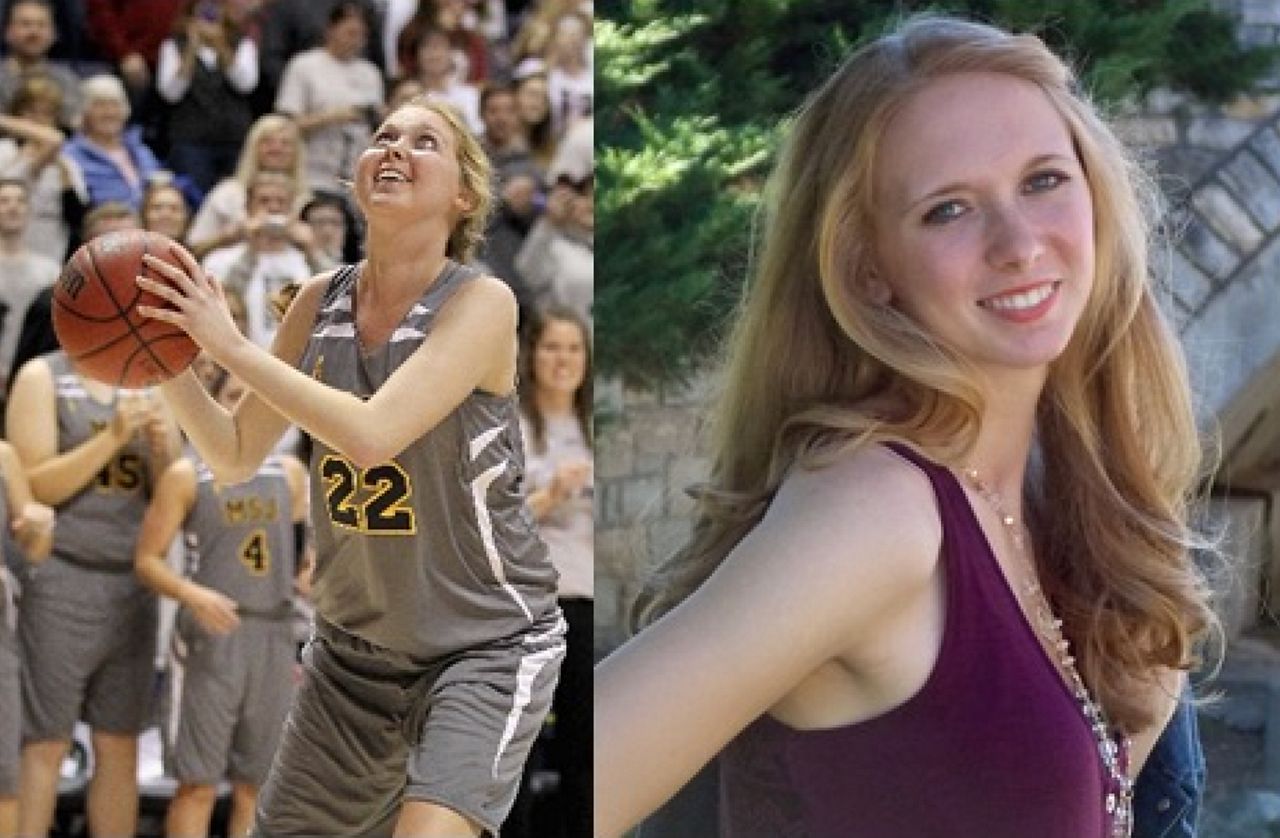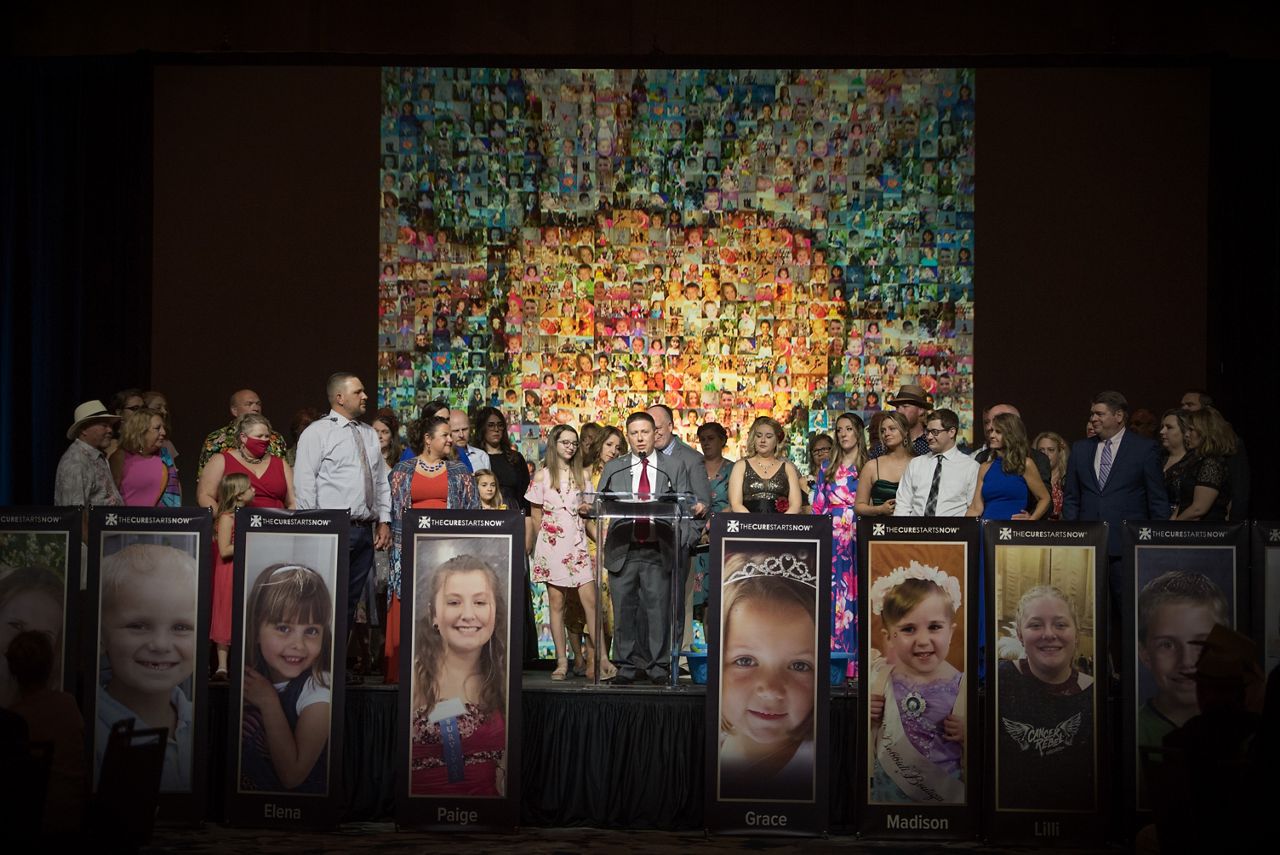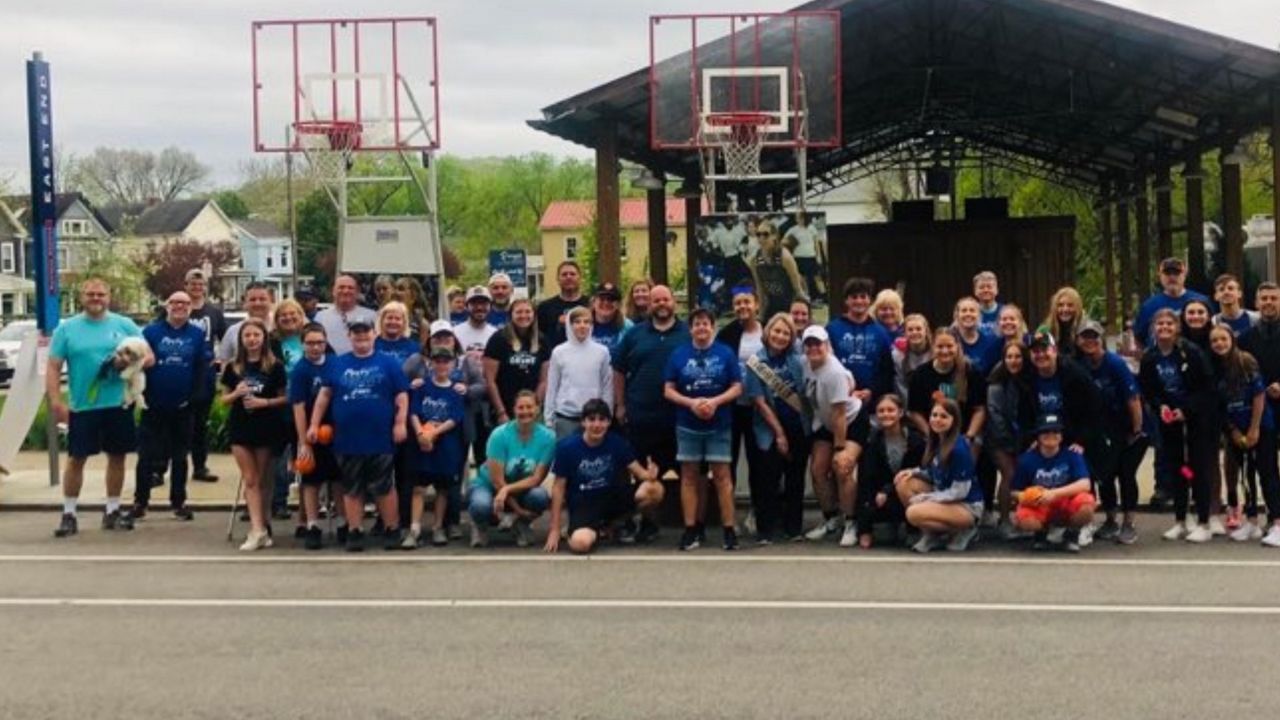CINCINNATI — Anyone who’s run the Flying Pig Marathon in the past eight years in no stranger to Lisa Hill.
Every May, Hill, her ex-husband Brent and dozens of volunteers prop up a pair of temporary basketball hoops at 22-mile marker race near Eli’s BBQ in Cincinnati’s East End neighborhood. As racers pass, they’ll get asked to complete what the Hills call a “Layup for Lauren.”
The setup is a bit of fun for tired runners, joggers and walkers pushing for the finish line, Lisa said. But it’s also a reminder of the lingering legacy of her daughter, Lauren Hill.
What You Need To Know
- Family and friends of Lauren Hill will once again honor her legacy during the Flying Pig Marathon
- Hill, a former college basketball player, became famous in 2014-15 for her courageous battle against DIPG
- Through work with The Cure Starts Now, Hill helped raise millions of dollars for pediatric cancer research
The former Mount St. Joseph University basketball player became famous the world over for her courageous fight against diffuse intrinsic pontine glioma, or DIPG. It’s an inoperable and terminal form of brainstem cancer typically found in young children.
Lauren died on April 10, 2015. She was 19.

Even today, few days go past without the loss of Lauren not “hurting” Lisa in some way or another. But on Sunday, she expects to experience a scene celebration on Riverside Drive.
During the marathon, the team of volunteers holds up signs, cheers on runners and hand out mini basketballs to runners making their way to the finish line. Some racers catch the ball and move along, Lisa said. But other runners — and onlookers from the crowd — stop to talk for a few seconds about DIPG and what they can do to help.
Mile Marker 22 also serves as a fundraiser for Lauren’s Fight for Cure Foundation, a Lawrenceburg, Ind.-based nonprofit that raises funds to support DIPG families and research.
Lauren wore No. 22 on her jersey.
“It’s probably one of my favorites of these kinds of events because it’s so celebratory,” said Lisa, who lives in Lawrenceburg, Ind. “This is really a chance to celebrate Lauren’s life and raise awareness about DIPG while having some fun.”
Lauren learned of her diagnosis shortly after her 18th birthday in Nov. 2013, just 49 days after committing to play basketball for Mount St. Joseph University in Delhi Township. Doctors told her at the time that she’d have anywhere from a few months to two years, if lucky.
“It was devastating,” recalled Lisa. She had to relive the same pain “over and over” when she broke the news to her parents, her ex-husband’s parents, and her other children.
“My world just turned upside down,” she added. “As a parent, you plan out this whole life with your kids. Then, all the sudden, for me, someone had turned over an hourglass and tells you time is running out, but won’t tell you how long you have.”
The cancer didn’t take long to attack Lauren’s body. The combination of the disease and treatments left her sensitive to light and loud noises, and affected her appetite. She also lost some of her ability to move.
But instead of quitting, Lauren did the opposite. The teenager became the de facto spokesperson for all DIPG patients and an advocate for the importance of funding pediatric cancer research.
During her 17-month battle, Lauren appeared on national TV, did hundreds of interviews and received awards for her courage. A sell-out crowd attended her first college game, which had to be moved to a much larger venue to accommodate the more than 10,000 fans who wanted to cheer her on.
Lauren did it all so other kids wouldn’t have to suffer, her mother said.
“She wanted to be a voice for the voiceless,” added Lisa, noting that the typical age of those with DIPG is between 5 and 9 years old.
“It hurt Lauren to know so many young kids were suffering,” she continued. “Lauren was lived an incredibly public life even on her worst days because she wanted to be a springboard to finding a treatment for this horrible disease.”

Aside from basketball, the thing Lauren became best known for was her support of The Cure Starts Now. Brooke and Keith Desserich started the foundation in 2007 following the death of their daughter, Elena.
Lauren learned of the organization through another young adult living with DIPG named Brendan Kelley. He told Keith he thought Lauren would make a great ambassador for the cause, Lisa said.
Back 16 years ago, there was very little funding for DIPG research, according to Dr. Trent Hummel, MD, a pediatric neurooncologist at Cincinnati Children’s Hospital. As a result, there were very few drug trials and no DIPG-specific treatments.
Doctors told the Desserichs their daughter had a 1% chance of survival, Keith said. In cancer terms, “survival” traditionally means lasting five years or longer. But Hummel described the historic long-term survival period for DIPG patients as only two years as a result of patient outcomes being so poor.
Elena died nine months after being diagnosed. The year Elena died, there was less than $200,000 spent researching DIPG, Keith said.
But things have changed in recent years. Since 2007, The Cure Starts Now has raised more than $30 million for DIPG research. And he feels DIPG ambassadors, like Lauren, are a major reason.
Even eight years after her passing, Lauren’s impact on DIPG research continues to expand. Through her The Cure Starts Now tribute page alone, she’s raised more than $2.6 million in direct DIPG funding.
Those Cure Starts Now dollars have gone to funding for more than 100 grants at 132 hospitals in 17 countries. That research has led to more than 130 clinical trials.
In recent years, researchers have even identified DIPG patients who’ve met and surpassed the five-year survival mark, Keith said. Several are going to attend an international research symposium in Lexington, Ky., later this month.
“Lauren found that the best thing she could do best was to go play basketball and to inspire people,” Keith said.
“She made a choice,” he continued. “She could have gone on a protest or yelled about it. But she wanted to inspire them through acts of kindness and acts of love.”
Since Lauren’s passing, her mother has become even more involved in the fight to find a cure for DIPG. In addition to her own foundation, Lisa leads The Cure Start Now’s chapter in southeast Indiana. It’s one of 40 chapters across the globe.
This weekend may be more fun than most of her work events, but Lisa said she’s committed to helping to find a cure for DIPG. She knows that’s what her daughter would have done.
“We’ll never give up,” Lisa said.



